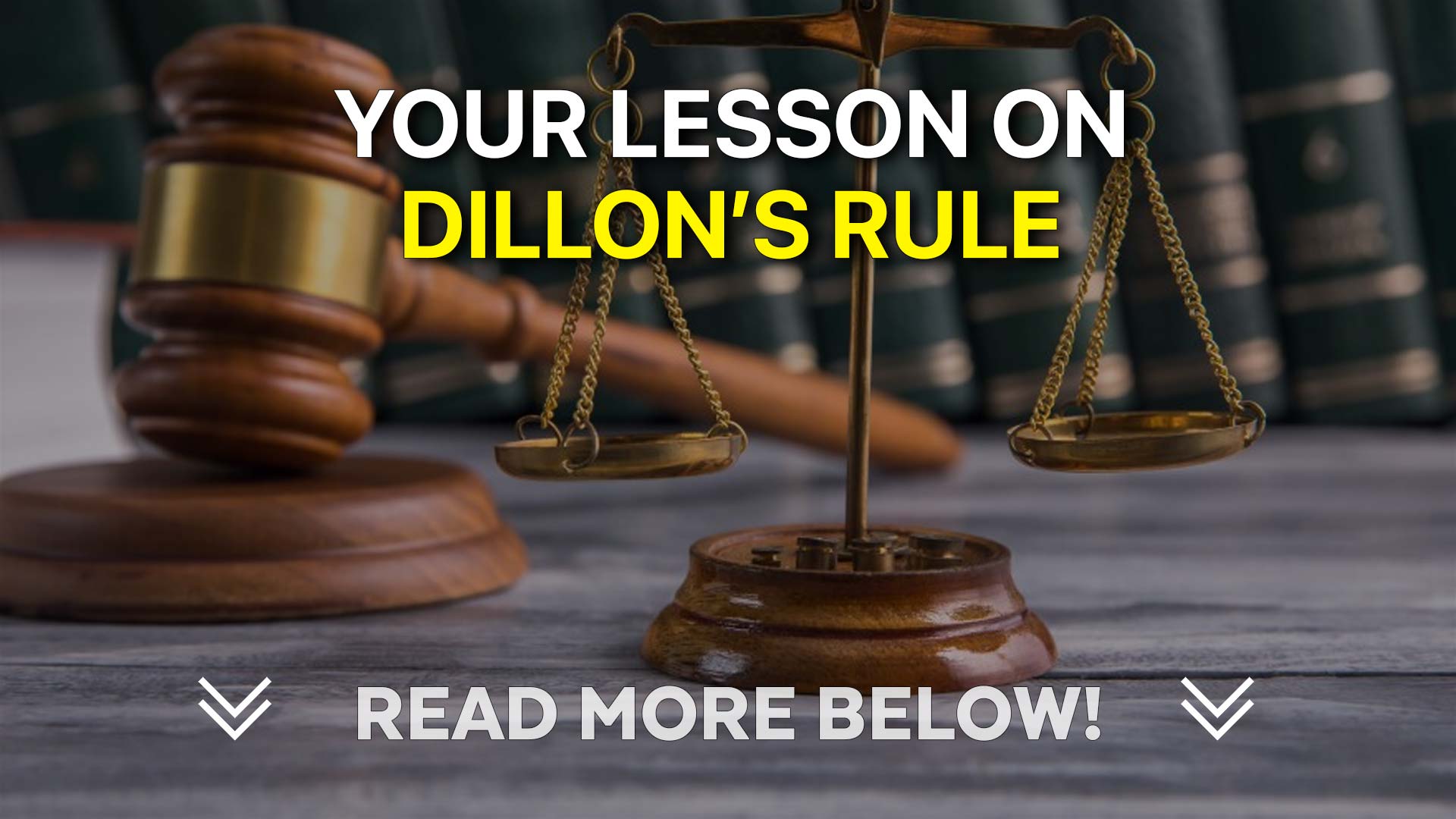I want to dedicate this post to educating you on what Dillon’s Rule and Home Rule are.
It’s important because we keep hearing the attorneys for the county say they can’t implement much-needed election reform in critical areas due to Dillon’s Rule.
Many don’t know what these rules are or even what they mean or limit, so it’s critical you understand, as many attorneys don’t. I find myself educating many, which is terrifying all in itself, but I digress. At the end of this post, you will have a far better understanding and be able to wrangle in the BS and push out the truth.
Let’s begin; I will just touch on a few items here. If I were to touch on them all, this post would be 30-50 pages long. The Constitution and NRS are very clear. It says the county commissioners have the ability to run the elections how they see fit, so long as they don’t violate the law or go against the already established rules of the Secretary of State, as shown here just regarding voting machines:
Nev. Const. Art 4 Sec 20: Certain local and special laws prohibited. The legislature shall not pass local or special laws in any of the following enumerated cases—that is to say:
Regulating the election of county and township officers;
Providing for opening and conducting elections of state, county, or township officers, and designating the places of voting;
NRS 244.194: Boards of county commissioners may rent, lease or otherwise acquire voting or counting devices in whatever manner will best serve local interests.
NRS 293B.105 General authority.
The board of county commissioners of any county or the city council or other governing body of any city may purchase and adopt for use at elections any mechanical voting system and mechanical recording device. The system or device may be used at any or all elections held in the county or city, for voting, registering, and counting votes cast.
293B.110 Adoption of different systems or devices for different precincts or districts.
A mechanical voting system or mechanical recording device may be adopted for some of the precincts or districts in the same county or city, while the remainder of the precincts or districts in that county or city may be furnished with paper ballots or any other mechanical voting system or mechanical recording device.
N.R.S. 293.269925 Establishment of procedures for processing and counting mail ballots.
- The county clerk shall establish procedures for the processing and counting of mail ballots.
- The procedures established pursuant to subsection 1:
(a) May authorize mail ballots to be processed, verified and counted by computer or other electronic means;
Notice how it over and over again says “MAY,” remember, folks, words are important, especially in law. It doesn’t say “shall” it doesn’t say “must” This means the commissioners have the choice to use or not to use machines. I won’t get into HAVA rules etc., for brevity, but there are numerous ways to comply there as well, without using machines, legally.
Now what is Dillon’s Rule?
Dillon’s Rule, named after John Forrest Dillon, is a principle in American constitutional law that pertains to the distribution of powers between state governments and their local governments, such as cities, counties, and municipalities. It establishes that local governments have only those powers that are expressly granted to them by the state government. In other words, local governments derive their authority from the state, and they can exercise only the powers explicitly delegated to them by state law.
Under Dillon’s Rule, if a local government wants to take an action or pass a law, it must demonstrate that it has the legal authority to do so, either through specific provisions in the state constitution or statutes. Any powers not granted to local governments are retained by the state government.
Okay, so now that you’ve seen the definition and how they may or may not use machines if they choose, let’s dig into the argument.
Dillon’s Rule, as it pertains to Nevada Revised Statutes (NRS) 244.137 to 244.146, is being interpreted too restrictively by the Washoe County Commissioners council. This restrictive interpretation, which assumes that the County lacks the power to alter its election policies, overlooks the important role of local authorities in administering and managing elections.
Election law is unarguably a local and county concern, as demonstrated by the fact that Washoe County is responsible for administering elections for its local public servants who serve the county voters, and citizens. The management of voter registration and the operation of polling places, how the votes are cast and counted are integral to these responsibilities. Hence, Washoe County has a substantial stake in election law and, by extension, should have influence over its implementation.
The application of county election laws contributes significantly to ensuring that elected officials are representative of their constituencies. In the event of flawed laws, inconsistent voting methods, and registrations, these officials will not genuinely represent the electorate. Thus, this issue is a direct concern for Washoe County.
Election laws that are out of touch with the local context can undermine public trust in the democratic process. Preserving this trust and guaranteeing laws that meet constituent needs are essential roles of county and local governments.
In light of these facts, the interpretation of Dillon’s Rule by the Washoe County DA’s Office is viewed as excessively narrow. While Dillon’s Rule does limit the powers of county governments, it does not expressly prohibit these governments from influencing election law.
Further, it’s crucial to acknowledge that Dillon’s Rule is not absolute and that its interpretation has been challenged in court. Several states, Nevada included, have adopted a broader interpretation known as “Home Rule,” which confers more expansive powers to local governments.
Home Rule is defined as, a principle in American constitutional law that grants local governments the authority to govern themselves with a certain degree of autonomy. Unlike Dillon’s Rule, which limits the powers of local governments to those explicitly granted by the state, Home Rule allows local governments to have broader powers and more flexibility in making decisions and enacting laws.
Under Home Rule, local governments can create and amend their own charters, which serve as a sort of mini-constitution for the municipality. These charters outline the structure of the local government, the distribution of powers, and the procedures for passing laws and ordinances.
Overall, Home Rule allows local governments to address their unique needs and concerns more effectively, promoting a sense of local democracy and self-governance within the broader framework of state law.
Now, the crucial role of local governments in the electoral process supports an inclusive interpretation of these powers. Even if not explicitly stated, it can be argued that effectively managing local elections is a fundamental element of a functional democratic system.
Based on the information provided, it appears that Nevada Revised Statutes (NRS) do not allow for complete “Home Rule” in relation to elections. Nonetheless, certain aspects of election administration, such as managing polling places and voter registration, are under the jurisdiction of the County.
The implementation of “Home Rule” in Washoe County, Nevada, would easily manifest as follows:
Given the significant administrative responsibilities related to elections entrusted to counties in Nevada, a broader interpretation of “Home Rule” would imply that the county possesses the authority to alter certain aspects of election procedures, ensuring a smoother and more efficient operation.
Washoe County, with its unique needs and circumstances that differ from those of other Nevada counties, could argue for the capacity to amend election laws to cater to these specific needs. This could involve procedures being tailored to local demographics or geographical conditions.
Washoe County could argue that the ability to adjust election laws based on local context and needs is crucial in preserving public trust in the “democratic” process, as they like to call it in our Constitutional Republic.
As a local government, being closer to citizens allows for a more responsive approach to their needs and issues. For a function as vital as elections, the ability to promptly and effectively respond to issues—like how votes are cast, counted, and manage voter registration—is crucial.
Finally, there is a legal precedent for “Home Rule” being applied in areas where state law is not explicit. If there are aspects of election law where state law remains silent, Washoe County can easily make a case for the application of “Home Rule”.
In conclusion, while there are indeed limitations set forth by Dillon’s Rule and the NRS, in the spirit of “Home Rule” and the necessity of effective local election administration, Washoe County possesses a degree of autonomy in adjusting its election laws to better meet the needs of its citizens and ensure a fair, representative democratic process. Lastly, “Home Rule” was addressed as an option as well; however, the DA’s office is defining Dillon’s Law so narrowly it overlooks the County’s absolute power to stay within the Secretary of State’s guidelines, NRS, and still has the autonomy to go to paper ballots, remove voting machines, clean voter rolls, require proper voter registration before voters are added to the rolls, and so much more.
Now that you know, don’t fall for the hype, the commissioners can change our elections to the will of the people using Dillon’s and could even use Home Rule in certain areas if needed as well.
Bottom line, with what Jeanne Herman has put forward in the past and just recently could all be adopted by the County and be in compliance with Dillon’s.
The more you know, the more we win.
Beadles




